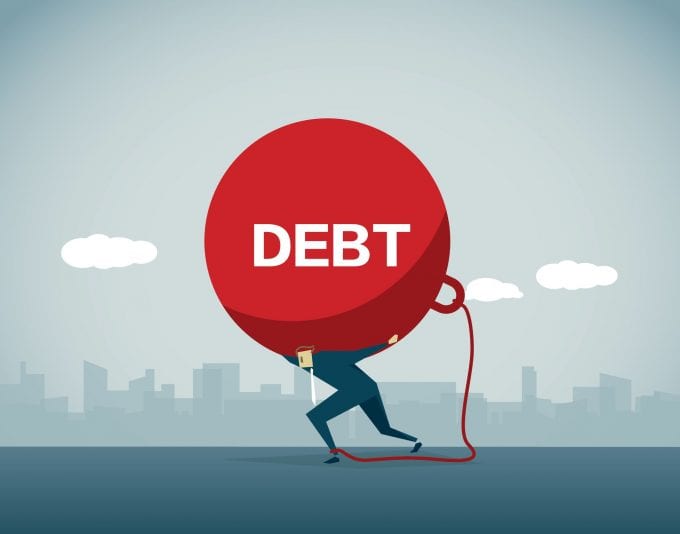Eyeglasses, trips, food, school, clothes … you might feel like your expenses never end when you have kids. It is easy to end up going into debt when you feel like you don’t have enough income to cover all of the expenses. Many parents actually have more debt than people who do not have kids. If you think you might not be able to keep up with the endless expenses related to having kids, perhaps you should reconsider whether having more kids is the right decision. The Doe explains that bringing babies into this world might not be ideal given the dreadful conditions the planet is facing right now.
But going into debt to pay for the essentials isn’t your only option. The following will help you learn about a few changes that can make a big difference in your finances when it comes to parenting.
Read along to find out how you as a parent can begin chipping away at your debt.
What Kind of Debt Do Parents Have?

When you have kids, you have many priorities competing for your limited income. The lawyers at Scura say that on top of day-to-day expenses, such as utilities, clothing, and groceries, many parents have debt, whether it’s from a mortgage or another loan. In this day and age, it’s hard to escape not taking on debt to do the things that you want and need with so many different options available. However enticing it may be to borrow money in order to get what your heart desires, at the same time, you should consider starting saving for your retirement and your children’s education.
To get an idea of where parents get stuck in a rut when it comes to their finances, here are a few of the top things that become a problem because of a lack of proper money management:
- Saving money for retirement: Retiring is necessary, and you need funds to live on, but many people do not have anything saved up or only a little. It’s better to begin saving earlier on for retirement than only a couple of years away from throwing in the white flag in the job market.
- Debt: Many parents have some type of debt, whether it is from mortgages, credit cards, student loans, car payments, or other types of loans. With kids growing up, the pressures of work and just so much going on in parents’ lives, sometimes it’s not so evident that these regular debts can be refinanced such as your mortgage or that balances can be transferred to other loan programs that have a lesser percentage rate. Debt becomes a problem when it’s mismanaged and literally not paid attention to, no pun intended.
- Daily expenses: Paying for clothing and other necessities can be hard, especially when the price of food is so high. That means there may be little leftover when it comes to saving for major purchases, like when an appliance needs to be replaced. For this reason, it’s a good idea to put some money away every now and then and make it a habit for situations that come up in life that require you to have disposable money in hand.
When you can’t afford the necessities, it affects every aspect of your finances. Having a large amount of debt can make even normal expenses seem unattainable. This can take away much of the money that’s left in your budget.
That’s why it is so important to understand these issues early on and have a game plan for how you manage your money. That way, you can quickly tackle minor financial headaches when they do come about and relieve any difficulties or worries which you most likely would have experienced if you weren’t prepared.
Paying Off Debt

Sometimes, your finances are not as bad as they might seem. You may only need to change your mindset and be more knowledgeable about your spending and financial habits. There are several things that you can do right now to make things more affordable.
First, if you do not already have a budget, this is the time to create one. You might have seemed unimportant expenses every month that actually take more of your income than you may realize. Look at each of your expenses and determine where you can cut down. You can do it by hand, create a spreadsheet on your computer, or find an app. No matter how you do it, making a budget can help you stay accountable while showing you where you may be overspending.
Once you have tracked your expenses, it is time to study each of the areas that you can save on. For example, you may look for better mortgage rates or search for different interest rates from credit card providers.
It is a good idea to start placing money in an emergency fund if you have not already. This fund can prevent you from going further into debt if you have an extra expense, such as an unexpected car repair. An emergency fund can give you more of a buffer.
Cooking at home is a good way to save some money if you do not do this already. Consider reducing the number of times you go out to eat per month. Perhaps you will only go out for special occasions, such as birthdays or the end of a school year.
Dealing with debt is also important. If you only pay the bare minimum, then it can take a very long time to pay your debts down. Instead, you will want to look for a method that helps you get ahead of your payments. Consider looking for motivational finance blogs or using a method like the debt snowball.
Closing Thoughts

Taking care of debt as soon as possible will help you have a larger budget. That way, you will soon have more money to spend on the necessities. And with your emergency fund, you will no longer need to go into debt for major, unexpected purchases.
Being mindful of the way you spend your money isn’t hard to do. You can do it every day and involve your entire family, including young children. Discuss ways that you can reduce your spending while reducing your debt. Look for free activities, such as going to a park or a playground for the afternoon.









